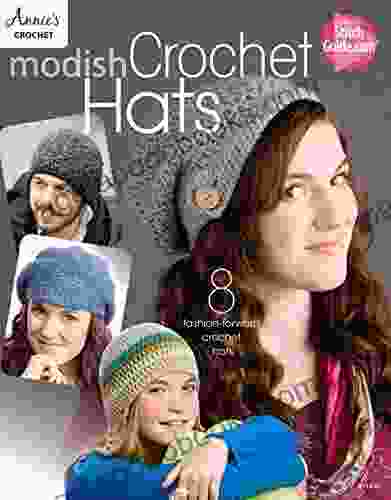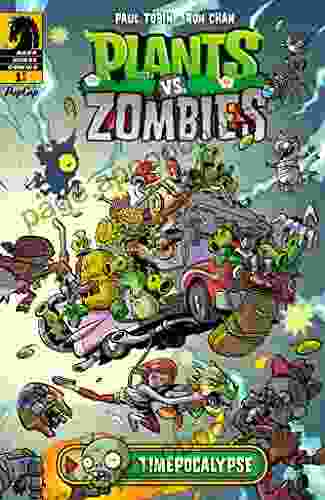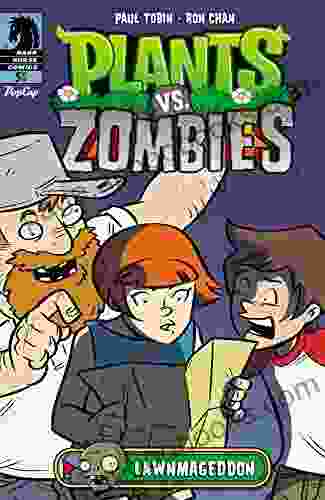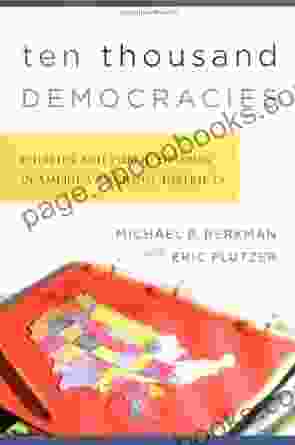Politics and Public Opinion in America: School Districts and American Governance

The relationship between politics and public opinion is a complex one, and it is particularly evident in the realm of education. School districts are often the target of political debate, and the policies they adopt are often shaped by the public's opinion on education.
4.9 out of 5
| Language | : | English |
| File size | : | 3210 KB |
| Text-to-Speech | : | Enabled |
| Word Wise | : | Enabled |
| Print length | : | 224 pages |
| Screen Reader | : | Supported |
In recent years, there has been a growing polarization of public opinion on education. This polarization is reflected in the political debate over education policy, with Republicans and Democrats increasingly divided on issues such as school choice, teacher unions, and the Common Core State Standards.
The polarization of public opinion on education is also evident in the way that interest groups are involved in education policy. Interest groups are organizations that represent the interests of particular groups of people, and they often play a role in shaping public opinion on policy issues.
In the case of education, there are a number of interest groups that are involved in policy debates. These groups include teachers unions, school boards, and parent groups. Each of these groups has its own interests, and they often compete with each other to influence public opinion and policy decisions.
The media also plays a role in shaping public opinion on education. The media can influence public opinion by the way that it frames issues and by the stories that it chooses to cover. For example, the media's coverage of school shootings can lead to increased public support for gun control measures.
The relationship between politics, public opinion, and education policy is a complex one. However, it is clear that these three factors are closely intertwined, and they all play a role in shaping the way that education is governed in America.
The Role of Political Ideology
Political ideology is a system of beliefs that guides people's political behavior. It is often based on a person's values, beliefs, and experiences. Political ideology can have a significant impact on a person's views on education.
For example, people who identify as liberals are more likely to support policies that increase funding for public education and that promote social justice in schools. People who identify as conservatives are more likely to support policies that promote school choice and that reduce the government's role in education.
The role of political ideology in education policy is evident in the way that different political parties approach education issues. For example, the Republican Party is generally more supportive of school choice and less supportive of public education funding. The Democratic Party is generally more supportive of public education funding and less supportive of school choice.
The Role of Interest Groups
Interest groups are organizations that represent the interests of particular groups of people. They often play a role in shaping public opinion on policy issues, and they can also influence policy decisions by lobbying elected officials and policymakers.
In the case of education, there are a number of interest groups that are involved in policy debates. These groups include teachers unions, school boards, and parent groups. Each of these groups has its own interests, and they often compete with each other to influence public opinion and policy decisions.
For example, teachers unions are often advocates for increased funding for public education and for policies that protect teachers' rights. School boards are often responsible for setting policies for their local school districts, and they can be influenced by the interests of their constituents. Parent groups can also play a role in shaping education policy, by advocating for policies that they believe will benefit their children.
The Role of the Media
The media can play a significant role in shaping public opinion on education. The media can influence public opinion by the way that it frames issues and by the stories that it chooses to cover.
For example, the media's coverage of school shootings can lead to increased public support for gun control measures. The media's coverage of standardized testing can lead to increased public support for reforms to the testing system.
The media can also influence public opinion on education by the way that it portrays different groups of people. For example, the media's portrayal of teachers can influence public opinion on teachers unions and on the teaching profession as a whole.
Implications for the Governance of School Districts
The relationship between politics, public opinion, and education policy has a number of implications for the governance of school districts.
First, the polarization of public opinion on education can make it difficult for school boards to make decisions that are in the best interests of their students. School boards are often caught between the competing interests of different groups, and they may feel pressure to make decisions that will please one group over another.
Second, the involvement of interest groups in education policy can make it difficult for school districts to make decisions that are based on evidence and research. Interest groups often have their own agendas, and they may try to influence school board decisions in ways that benefit their own interests.
Third, the media's coverage of education can influence public opinion and school board decisions in ways that are not always in the best interests of students. The media may focus on sensational stories that grab attention, even if they do not accurately reflect the reality of education in America.
The relationship between politics, public opinion, and education policy is a complex one. However, it is clear that these three factors are closely intertwined, and they all play a role in shaping the way that education is governed in America.
It is important to be aware of the role that politics, public opinion, and the media play in education policy. By understanding these factors, we can better understand the challenges that school districts face and we can work to ensure that education policy is based on evidence, research, and the best interests of students.
4.9 out of 5
| Language | : | English |
| File size | : | 3210 KB |
| Text-to-Speech | : | Enabled |
| Word Wise | : | Enabled |
| Print length | : | 224 pages |
| Screen Reader | : | Supported |
Do you want to contribute by writing guest posts on this blog?
Please contact us and send us a resume of previous articles that you have written.
 Book
Book Novel
Novel Page
Page Chapter
Chapter Text
Text Story
Story Genre
Genre Reader
Reader Library
Library Paperback
Paperback E-book
E-book Magazine
Magazine Newspaper
Newspaper Paragraph
Paragraph Sentence
Sentence Bookmark
Bookmark Shelf
Shelf Glossary
Glossary Bibliography
Bibliography Foreword
Foreword Preface
Preface Synopsis
Synopsis Annotation
Annotation Footnote
Footnote Manuscript
Manuscript Scroll
Scroll Codex
Codex Tome
Tome Bestseller
Bestseller Classics
Classics Library card
Library card Narrative
Narrative Biography
Biography Autobiography
Autobiography Memoir
Memoir Reference
Reference Encyclopedia
Encyclopedia Michael Frewston
Michael Frewston Matt Taibbi
Matt Taibbi Shuja Nawaz
Shuja Nawaz Thorsten Zeller
Thorsten Zeller Marty Hogan
Marty Hogan Tracey Mclennan
Tracey Mclennan Milo Yiannopoulos
Milo Yiannopoulos Riccardo D Wanke
Riccardo D Wanke Marta Williams
Marta Williams Patricia Meredith
Patricia Meredith Nettrice R Gaskins
Nettrice R Gaskins Niki Lee
Niki Lee Matthew Richardson
Matthew Richardson Neil Faulkner
Neil Faulkner Eloisa James
Eloisa James Phil O Viljoen
Phil O Viljoen Trickster Publishing Academy
Trickster Publishing Academy Nico Tortorella
Nico Tortorella Siegfried Engelmann
Siegfried Engelmann Navana Kundu
Navana Kundu
Light bulbAdvertise smarter! Our strategic ad space ensures maximum exposure. Reserve your spot today!

 Joseph ConradEmpowering Educators: The Action Research Planner for Transformative Teaching
Joseph ConradEmpowering Educators: The Action Research Planner for Transformative Teaching Kirk HayesFollow ·16.9k
Kirk HayesFollow ·16.9k Theo CoxFollow ·13.3k
Theo CoxFollow ·13.3k Robert BrowningFollow ·19.3k
Robert BrowningFollow ·19.3k Fredrick CoxFollow ·17.3k
Fredrick CoxFollow ·17.3k Galen PowellFollow ·14.7k
Galen PowellFollow ·14.7k Cormac McCarthyFollow ·11.4k
Cormac McCarthyFollow ·11.4k Gerald BellFollow ·4.2k
Gerald BellFollow ·4.2k Enrique BlairFollow ·12.9k
Enrique BlairFollow ·12.9k

 Ben Hayes
Ben HayesJourney into the Verdant Realm of "Plants vs. Zombies:...
Immerse Yourself in an Epic Battle for...

 Edward Reed
Edward ReedUnveiling the Allure of Modish Crochet Hats Annie...
In the realm of fashion and...

 Jaylen Mitchell
Jaylen MitchellHalf Moon Bay: An Unforgettable Adventure Awaits in Aj...
Prepare yourself...

 Dan Brown
Dan BrownUnleash the Plant-Powered Apocalypse: Dive into Paul...
Prepare yourself for an epic showdown where...

 Efrain Powell
Efrain PowellStolen Summer: Nora Sommer's Enthralling Caribbean...
Escape to a World of...

 Steven Hayes
Steven HayesPlants vs. Zombies: Lawnmageddon - The Ultimate Battle...
Prepare for the ultimate battle between plants...
4.9 out of 5
| Language | : | English |
| File size | : | 3210 KB |
| Text-to-Speech | : | Enabled |
| Word Wise | : | Enabled |
| Print length | : | 224 pages |
| Screen Reader | : | Supported |









